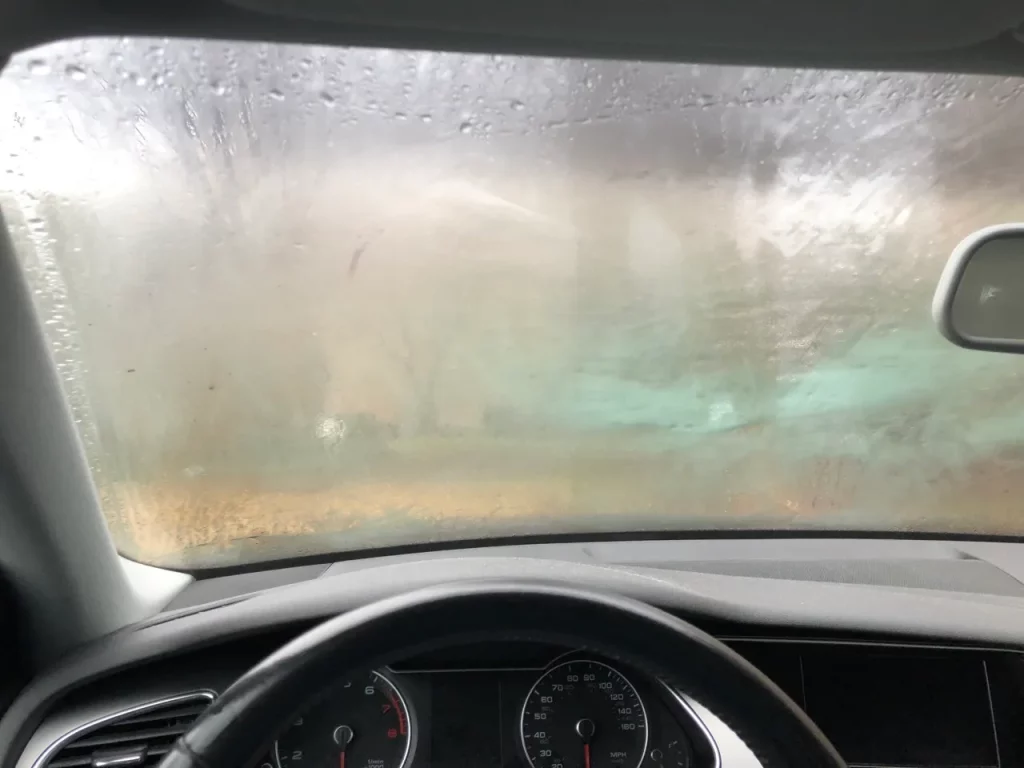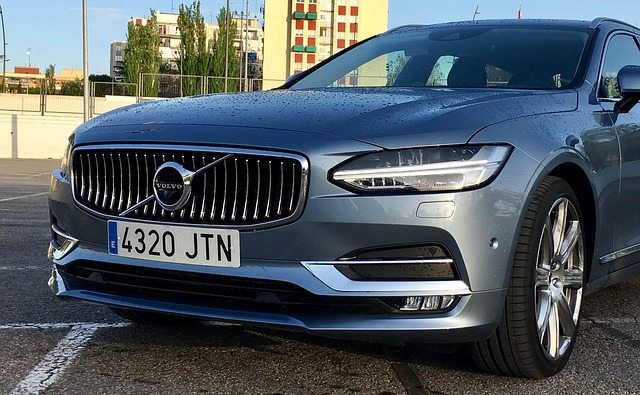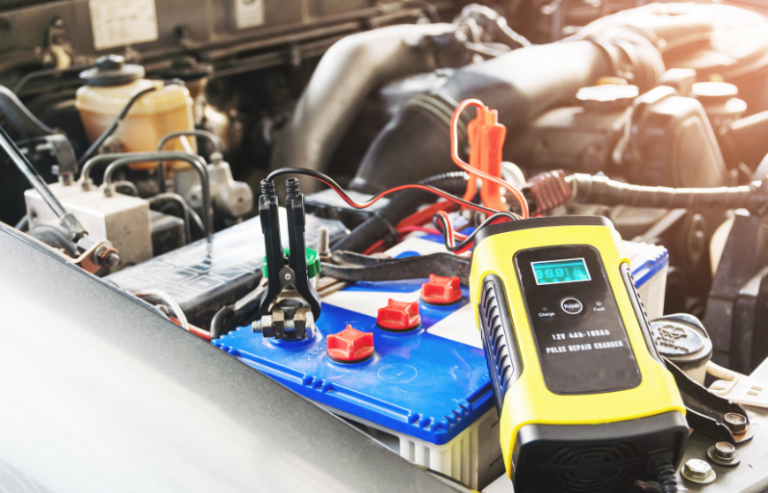Have you ever wondered why car windows fog up? It can be frustrating when you’re trying to drive and the windows are blurred.
In this guide, we’ll explore why car windows fog up and what you can do to prevent it from happening. Read on to learn more!
What Causes Fogged-Up Car Windows?
Fogging up of car windows is a common occurrence caused by temperature differences between the inside and outside of the car, as well as high levels of humidity both outside and inside the car.
In the summer, when humidity levels are high, moisture in the air condenses on the glass, forming fog.
When it’s cold outside and you have the heat on inside your car, the windows can fog up. The water particles in the air are cooled down to become a liquid, which is what causes fogging up on your windows.
Moisture in the Air Trapped in a Car
When people get in the car when it’s very cold, the warm, moist air from their breath comes into contact with a cold windshield, and the moisture condenses on the glass.
Windows and windscreens are usually cool compared to outside temperatures because the air trapped inside a vehicle is usually warmer and more humid than the cold air outside. This change in temperature makes the windows fog up because humidity and moisture condense on them, especially in the summer when humidity is high.
Too much water in the air can also contribute to car windows fogging up, leading to uncomfortable visibility.
Temperature Differences Inside and Outside the Car
The temperature difference between the interior and exterior of a car causes condensation on the windows, leading to fogging. This is especially common in the early morning hours when warm and moist air hits the cold window glass. Cold weather also increases the chance of fogging since there is a greater temperature difference between the inside and outside of a car.
In humid weather or when there are multiple passengers, condensation can form on the windows, causing them to fog up. Additionally, if it’s hot outside but cool inside your car, condensation might form on the windows, resulting in fogging.

Too Much Water in the Air
Too much water in the air causes fog when it condenses on the windows. This can happen when the air inside a car is warmer than the outside air, and humidity levels are high. The warm air has more space between molecules, allowing more moisture to be held, and when that air contacts a cold surface, like a car window, it condenses, forming fog.
This is why cars tend to have better seals; they are more watertight and make it harder for any moist air to get trapped inside.
Humidity Outside and Inside the Car
When it’s cold outside, and you have the heat on inside, the warm air will meet the cold glass and lead to condensation. This is especially true when humidity levels are high both outside and inside the car.
The warmth and humidity on the outside meet the chilly windshield and can react by fogging up the window.
Excessive moisture on the outside or inside of a car can lead to window fogging, so it’s important to ensure that humidity levels are balanced in order to keep your windows from fogging up.
High Humidity in the Summer
High humidity in the summer is a common cause of fogged-up car windows. When the air outside is hot and humid, it can enter the car and condense on the glass.
The warm air inside the car also contributes to this phenomenon, as it contains more moisture than cold air. As the air cools, moisture will form on the windows.
To avoid fogging up your windows, try to keep temperatures more balanced between inside and outside the car by opening your windows or using the AC.
Moisture Condensing on the Glass
When the air inside your vehicle is moist and warmer than the outside air, it hits the cold glass of the windows and causes moisture to condense. This is why car windows fog up.
If you are driving and your windows begin to fog up, turn on the heat and set the fan to a higher setting to help clear out the moisture.
Air Present Outside with More Humidity
When the air outside is more humid than the air inside the car, it can cause condensation on the windows. This occurs when warm, moist air from outside comes into contact with a cold surface such as the car window.
The warm air carries more moisture than the cold air, so when it meets a cold window, the moisture it contains is released and settles on the glass. This process is called condensation, and it’s why your car windows might fog up in certain weather conditions.

Chris Miller is an auto journalist who specializes in reviewing new cars and providing helpful advice on family vehicles. He has a passion for cars and enjoys sharing his knowledge and expertise with others.





